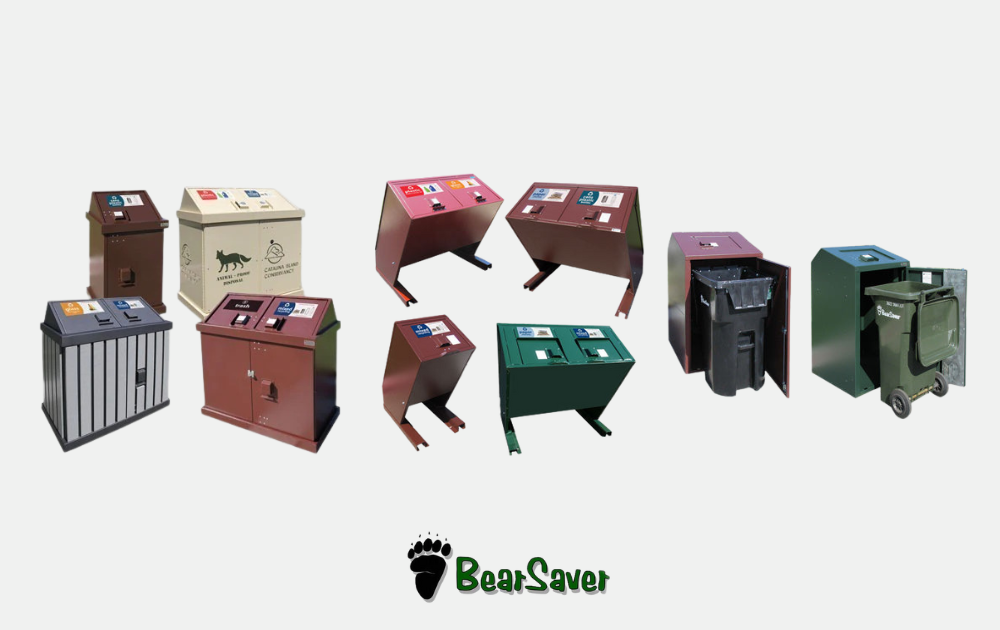Exploring the Economics of Animal-Proof Trash Cans: Cost vs. Benefit Analysis
Posted by Securr Blogger on
Animal-proof trash cans have become an essential solution in areas where wildlife encounters with human waste pose significant problems. From urban neighborhoods to rural parks, the need for sturdy, secure trash receptacles is evident. But what are the economic implications of investing in these specialized bins? In this blog post, we'll delve into the cost-benefit analysis of animal-proof trash cans, with a spotlight on BearSaver's innovative solutions.
The Growing Need for Animal-Proof Trash Cans:
As human populations expand into wildlife habitats, interactions between humans and animals are inevitable. While these encounters can be fascinating, they also pose risks to both parties. Wildlife scavenging through trash not only creates unsightly messes but can also lead to property damage, spread of diseases, and even endangerment of animals themselves.
Enter the animal-proof trash can—a simple yet effective solution to mitigate these issues. These specialized bins are designed to withstand the strength and cunning of various wildlife, from raccoons and squirrels to bears. By securing waste effectively, they help maintain cleanliness, safety, and ecological balance in shared environments.
Cost vs. Benefit Analysis:
At first glance, the upfront cost of animal-proof trash cans may seem higher compared to traditional bins. However, a deeper analysis reveals the substantial long-term benefits they offer, outweighing the initial investment.
1. Durability and Longevity: Animal-proof trash cans, such as those offered by BearSaver, are built to last. Constructed from robust materials like heavy-duty steel or durable polyethylene, these bins withstand harsh weather conditions, vandalism, and animal tampering. While the initial cost may be higher, their longevity reduces the need for frequent replacements, resulting in significant cost savings over time.
2. Prevention of Property Damage: Wildlife rummaging through trash can cause extensive damage to property, including torn garbage bags, toppled bins, and scattered debris. Animal-proof trash cans prevent such incidents, thereby reducing repair and cleanup expenses for homeowners, businesses, and municipalities.
3. Health and Safety Benefits: Unsecured trash attracts pests and vermin, increasing the risk of disease transmission to humans and animals. By effectively containing waste, animal-proof bins help mitigate these health hazards, potentially lowering medical costs associated with pest-related illnesses.
4. Environmental Preservation: Wildlife interference with trash not only harms human interests but also disrupts ecosystems. Animal-proof trash cans promote environmental conservation by preventing pollution, preserving natural habitats, and safeguarding wildlife populations.
BearSaver's Solutions:
Among the leading providers of animal-proof trash cans and recycle bins, BearSaver stands out for its innovative designs and commitment to quality. Their product range includes a variety of solutions tailored to different settings, from residential areas to wilderness parks.
Whether it's the Bearier™ series featuring double-walled steel construction or the BE series line with tilt-out bag racks, BearSaver offers options to suit various needs and budgets. Additionally, their customizable designs allow for branding and messaging opportunities, enhancing community engagement and awareness.
Contact BearSaver:
To explore how BearSaver's animal-proof trash cans can benefit your community or organization, contact them at:
Phone: 800-851-3887
Email: sales@bearsaver.com
Website: https://bearsaver.com
In the economics of waste management, investing in animal-proof trash cans is not just a cost but a strategic decision with multifaceted benefits. By analyzing the long-term savings, reduced risks, and environmental advantages, it becomes clear that the economic value of these bins extends far beyond their upfront price tag. With BearSaver's reliable solutions, communities can effectively address wildlife-human conflicts while promoting cleanliness, safety, and sustainability.

